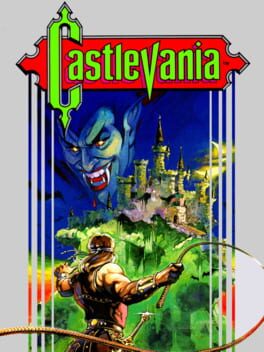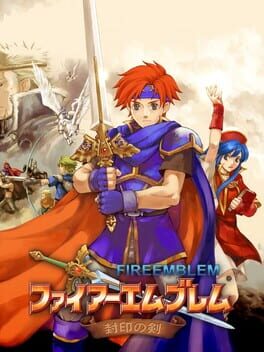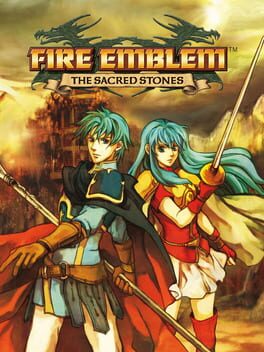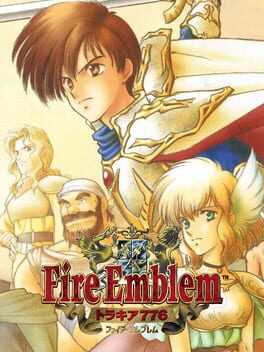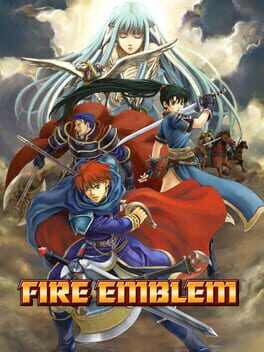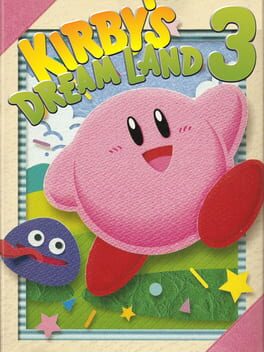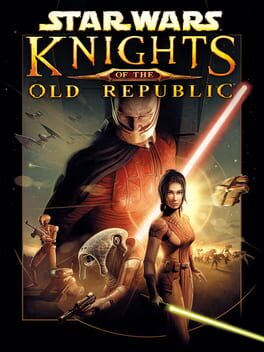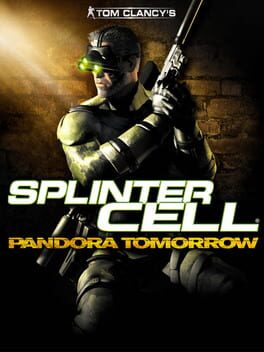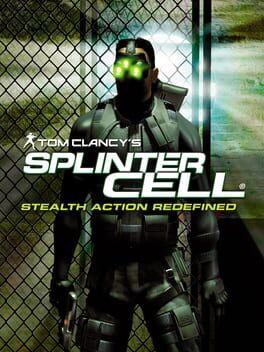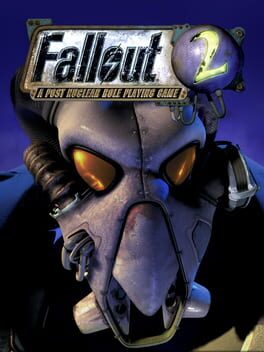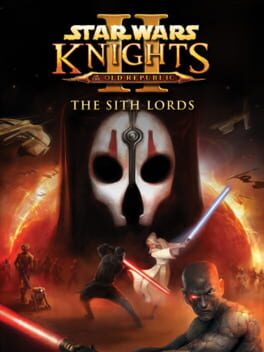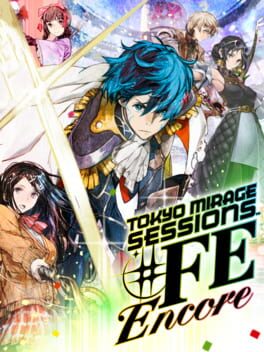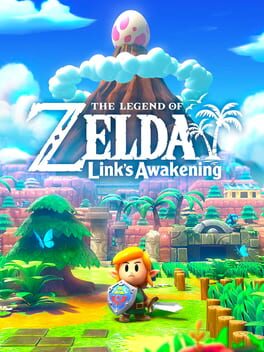Parallax_M
BACKER
1986
Strictly a platformer at this point as opposed to the metroidvania genre one of course thinks of with this series. Very difficult but not in an unfair way. Biggest criticism is that the game is too unforgiving for its difficulty level and requires too much replaying of old sections when you die. This is of course typical for an NES game but nevertheless brings it down in general. Soundtrack is great btw.
2013
Very similar to the other GBA games and like them has great characters and a good story. It is however, the weakest of the three in this regard. Has some idiosyncratic gameplay mechanics which arent well explained. Getting the true ending is also quite confusing. Definitelt consult a guide if you want to get it. Roy being a rather weak unit, especially for an MC is a cool and memorable feature and fits well with the story and his character.
Probably 2nd best of the GBA games behind blazing blade. Gameplay almost identical to blazing blade but with addition of optional grinding dungeons and quite a bit easier on normal difficulty. Main story is okay and quite standard FE plot. Characters are enjoyable as is almost always the case. Very average and standars FE game. Still great if youre an FE fan but certainly not a series standout.
This review contains spoilers
This is another one of those rare games that perfectly blends its themes and narrative with the experience of gameplay. Leif, the protagonist, is around 15 when this game takes place. Thracia 776 starts with Leif living in exile with a surrogate family of sorts, having been forced to flee his home by the pressure of an invading army. As the plot ramps up, Leif finds himself thrust into a leadership position where he has to command an impromptu army and lead them in a campaign to drive away the invading forces. The plot of Thracia is rather simple and on the whole isn’t terribly important. What is important, however, is Leif. Leif’s experience - being saddled with more responsibility than he could possibly imagine and being forced to cope with this new reality is rendered in a way that is pretty much unparalleled in the FE series in terms of depth and realism. Leif’s story is at once sad, poignant, inspiring, and life affirming, and Thracia 776 does an excellent job at getting the player to relate with and see themselves in Leif.
The gameplay perfectly compliments this narrative and it’s themes. It’s no secret that Thracia 776 is one of the most difficult FE games out there. You will often feel overwhelmed by the sheer amount of enemy soldiers and reinforcements to deal with. In Chapter 4 - which is one of my all time favorite levels in a videogame, you’re tasked with escaping an enemy prison and freeing the civilians imprisoned with you. As you do this, reinforcements appear from all sides to kill you, your comrades, and the escaping civilians. Once you manage to ensure the safety of the civilians - which is quite a challenge - you throw open the doors of the cell block thinking you’ll be able to make a clean break. When you do this, you’re met with a literal wall of armored guards. Now all you have to do is fight through them with your five under leveled and likely now injured party members. This is one of the most memorable “oh shit” moments I’ve ever had in gaming. This all sounds impossible, unfair, and frustrating, right? Wrong. One of the best things about Thracia 776 is that through all this struggle, against these seemingly insurmountable odds, victory is always possible with the right strategy even if this doesn’t seem to be the case. As you bang your head against the wall and reset the level you eventually will be able to get through those armored guards and escape. This experience is replicated several times throughout Thracia 776, and it is immensely satisfying every time.
Your journey as the player beautifully mirrors that of Leif. As Leif struggles facing units that far outnumber and outclass his own, so will you as the player. As Leif grows into his role as a leader you will grow into your role as a strategist. It’s one of the best underdog stories in gaming and Thracia’s design allows you to truly identify with the struggle and triumph of its protagonist.
This is a really special game and one that has stuck with me for years. While it isn’t a game that is particularly critical or one with something really unique to say, it is one that provides an unforgettable experience for the player. Despite having some very heavy themes and sad moments, Thracia is in many ways, a feel good story. It’s a story of inspiration and perseverance, of struggle and triumph, a story where intelligence, kindness, and grit are able to conquer any enemy. Most importantly, it’s also a story of hope. In our world, where our efforts are seldom rewarded and where hopefulness is often a fleeting and hard won state of mind, being able to actively participate in a story where struggle, and kindness, and hopefulness is rewarded can be very healing. One of the benefits of having a story like this in the medium of video games vs. film for instance is the ability for the player to identify with and actually feel the emotions of the protagonist via active participation. Being able to really feel emotions like triumph and hopefulness is honestly pretty rare. Some might balk at the idea of playing a videogame to experience these emotions, but isn’t that one of the most important functions of art - to make the person engaging with it feel something. Thracia 776 made me feel hopeful and triumphant, and that’s something that I think is very valuable.
I would recommend this game to anyone who is a fan of RPGs or strategy games. It can be challenging and daunting at first, but if you stick with it, I believe you’ll find it to be a rewarding and impactful experience.
The gameplay perfectly compliments this narrative and it’s themes. It’s no secret that Thracia 776 is one of the most difficult FE games out there. You will often feel overwhelmed by the sheer amount of enemy soldiers and reinforcements to deal with. In Chapter 4 - which is one of my all time favorite levels in a videogame, you’re tasked with escaping an enemy prison and freeing the civilians imprisoned with you. As you do this, reinforcements appear from all sides to kill you, your comrades, and the escaping civilians. Once you manage to ensure the safety of the civilians - which is quite a challenge - you throw open the doors of the cell block thinking you’ll be able to make a clean break. When you do this, you’re met with a literal wall of armored guards. Now all you have to do is fight through them with your five under leveled and likely now injured party members. This is one of the most memorable “oh shit” moments I’ve ever had in gaming. This all sounds impossible, unfair, and frustrating, right? Wrong. One of the best things about Thracia 776 is that through all this struggle, against these seemingly insurmountable odds, victory is always possible with the right strategy even if this doesn’t seem to be the case. As you bang your head against the wall and reset the level you eventually will be able to get through those armored guards and escape. This experience is replicated several times throughout Thracia 776, and it is immensely satisfying every time.
Your journey as the player beautifully mirrors that of Leif. As Leif struggles facing units that far outnumber and outclass his own, so will you as the player. As Leif grows into his role as a leader you will grow into your role as a strategist. It’s one of the best underdog stories in gaming and Thracia’s design allows you to truly identify with the struggle and triumph of its protagonist.
This is a really special game and one that has stuck with me for years. While it isn’t a game that is particularly critical or one with something really unique to say, it is one that provides an unforgettable experience for the player. Despite having some very heavy themes and sad moments, Thracia is in many ways, a feel good story. It’s a story of inspiration and perseverance, of struggle and triumph, a story where intelligence, kindness, and grit are able to conquer any enemy. Most importantly, it’s also a story of hope. In our world, where our efforts are seldom rewarded and where hopefulness is often a fleeting and hard won state of mind, being able to actively participate in a story where struggle, and kindness, and hopefulness is rewarded can be very healing. One of the benefits of having a story like this in the medium of video games vs. film for instance is the ability for the player to identify with and actually feel the emotions of the protagonist via active participation. Being able to really feel emotions like triumph and hopefulness is honestly pretty rare. Some might balk at the idea of playing a videogame to experience these emotions, but isn’t that one of the most important functions of art - to make the person engaging with it feel something. Thracia 776 made me feel hopeful and triumphant, and that’s something that I think is very valuable.
I would recommend this game to anyone who is a fan of RPGs or strategy games. It can be challenging and daunting at first, but if you stick with it, I believe you’ll find it to be a rewarding and impactful experience.
Some of the most likable characters in any FE game. the trio of main characters are super memorable and have great chemistry. Main plot is also quite good, which isnt always the case for FE games. Very good gameplay and lots of replayability as well. Great entry point for the series as its easy to get into and doesnt have any confusing of obfuscated gameplay mechanics.
1997
best of the dreamland games by far. incredibly charming and cute artstyle - probbaly the most charming ive seen on the SNES. better than even yoshis island imo. requires getting all heart star collectibles to reach final boss but these arent too hard to get and dont require tedious backtracking like in DL2. There's also a nice variety in how you obtain these collectibles. In DL2 the rainbow drops were gathered by using specific copy abilities to get into a secret area. This is the case for some of the heart stars in DL3 but others are obtained by playing minigames or manipulating certain objects in the level that the game subtly hints at. Animal friends steal the show. The new ones are a welcome addition and add even more variety to kirbys moveset. The animal friend copy abilities have also been tweaked since DL2 and are generally a lot more useful now. They also have some of the most adorable character designs I’ve ever seen in a game. I wanted to try out every copy ability / animal friend combo just to see what it would look like / how cute it would be. The animal friends also react to Kirby leaving them in really cute and hilarious ways. This ranges from Rick (the hamster) looking mildly annoyed to Kine (the sun fish) literally crying which melts my heart every time I see it. perfect difficulty for a Kirby game too
Truly bioware at its best. Lots of branching paths in quests that arent obviously choreographed which adds to the role playing immersion a lot. Also does a great job at showing complexity and gray area in thr star wars light / dark side dichotomy. The game does this better than any of the movies. Similar quest design and branching paths to dragon age origins. Would recommend this game to anyone. You definitely dont need to be a star wars fan.
Features much the same jank as SC1 with quite a few instances of inexplicable enemy detections but is overall more balanced than the original. Story line feels a bit rushed but classic SC gameplay is present and on point. Rewarding and challenging down to earth stealth gameplay that will make you feel like a badass when you master it. One of the big new additions in this game is daytime missions which ups the difficulty by making you more visible.
The level concepts and level design in this game is definitely a step up from the original. The airport mission, the train mission, and the tv station mission all stand out for sure. The design of Pandora Tomorrow, like that of the first Splinter Cell, definitely does create moments where trial and error feels like the only way to progress. This is thankfully a bit less prevalent here than in the original.
Overall Pandora Tomorrow is very similar to the original Splinter Cell with some minor improvements in balance and level design. The story in this game is a bit of a mess and gets rushed over in places, but this is something I can excuse due to the gameplay being the real focus of this title.
The level concepts and level design in this game is definitely a step up from the original. The airport mission, the train mission, and the tv station mission all stand out for sure. The design of Pandora Tomorrow, like that of the first Splinter Cell, definitely does create moments where trial and error feels like the only way to progress. This is thankfully a bit less prevalent here than in the original.
Overall Pandora Tomorrow is very similar to the original Splinter Cell with some minor improvements in balance and level design. The story in this game is a bit of a mess and gets rushed over in places, but this is something I can excuse due to the gameplay being the real focus of this title.
This is a very promising but flawed start for the franchise. To start off, I absolutely love the concept of a slow paced and grounded stealth game. There's a bit of a learning curve when you first start because you really do have to play much slower and more meticulously than you would in Metal Gear Solid for instance. The story is serviceable albeit not terribly memorable or deep. It works well enough to tie the levels together, which are the real reason to play this game. Level design and theming varies pretty widely. The theming for the CIA and presidential palace missions are fantastic. My biggest criticism of level design is that its a bit too linear. This style of gameplay is definitely better served by more open level design as evidenced by the far superior Choas Theory. This linearity can unfortunately make the gameplay feel like its based more on trial and error than creativity and skills. There are quite a few sections where there's really only one very specific way to proceed and the player has to get themselves killed several times to be able to understand what the game wants them to do. This game is also very unforgiving about breaking stealth - if you get spotted and there's more than one enemy in the room you're probably going to die pretty quickly. The AI detection is also pretty janky at times, which can lead to what feel like unfair game overs.The difficulty does however make the game very rewarding and enjoyable once you get the hang of it. Sam Fisher, despite being capable, always feels vulnerable. This adds a nice amount of tension to the game, which perfectly compliments the slower paced stealth gameplay its going for.
Overall this is a very promising start to a franchise and a very unique stealth experience that is weighed down by jank and linearity in level design that can make the experience at times frustrating and monotonous
Overall this is a very promising start to a franchise and a very unique stealth experience that is weighed down by jank and linearity in level design that can make the experience at times frustrating and monotonous
1997
This review contains spoilers
Absolutely amazing game and surely one of the most influential and important crpgs of all time. this was one of the first rpgs to make speech and dialogue options a legitimate strategy for finishing the game. in this vein the game has some of the best writing and truly open ended choice based gameplay ive seen in an rpg. This game as well as fallout 2 are games that are truly interested in the political and sociological impacts of your actions. People say that the road to hell is paved with good intentions and this is definitely reflected in the writing of fallout. This is one of the only games I've seen where the apparently moral choices can lead to massive unintended consequences that make you truly question your ways of thinking about the game world and your place in it. The best part about this is that these unintended consequences never seem unfair and are always things that a perceptive player can anticipate. *SPOILER WARNING**: One of the best instances of this is in the Junktown arc. If a player choses to side with the town's sherrif and drive away the criminals operating there, the town ends up becoming a shell of its former self. This is because these criminal enterprises - despite being obviously immoral - are the backbone of the town's economy. This is never choreographed by the game. You never have an NPC saying something like "i wish these criminals were gone but I bet that would mess up the town's economy, huh". A player can only anticipate this result by observing the town and noticing that the majority of the people there are engaged in or supported by criminal enterprise. These kinds of choices and consequences are present throughout the entirety of fallout one and two and in a somewhat more user-friendly and IMO slightly less effective but still brilliant form in fallout new vegas. *END SPOILER WARNING**
Looking at the reviews on this site I'm honestly shocked its not ranked higher. I can understand the gameplay being rough for people not used to playing games from this era - although if you stick with it through a potentially difficult first couple of hours one acclimates very quickly. At the end of the day you dont have to like this game and you're not an idiot if you don't like it (I would severely question your judgment if you tried to make the case that this game is bad or fails as an rpg but there's nothing wrong with not liking its, its not for everyone). If you're someone who doesn't care about story or story based mechanics and is playing this entirely for combat you're probably going to be disappointed. While the combat could be better - and was definitely improved upon in Fallout 2, combat was never the focus of the fallout series in the early days. One of the reasons this game is so important and so beloved is the importance of dialogue to the progression of the game. This is an early example and one of the most successful examples of an rpg where THE primary method of interacting with the world is talking and not combat. If you're not interested in that you probably wont like this game. However, for people who think that sounds interesting, this is undeniably one of the best RPGs of all time and I have no doubt that you'll love this game.
Looking at the reviews on this site I'm honestly shocked its not ranked higher. I can understand the gameplay being rough for people not used to playing games from this era - although if you stick with it through a potentially difficult first couple of hours one acclimates very quickly. At the end of the day you dont have to like this game and you're not an idiot if you don't like it (I would severely question your judgment if you tried to make the case that this game is bad or fails as an rpg but there's nothing wrong with not liking its, its not for everyone). If you're someone who doesn't care about story or story based mechanics and is playing this entirely for combat you're probably going to be disappointed. While the combat could be better - and was definitely improved upon in Fallout 2, combat was never the focus of the fallout series in the early days. One of the reasons this game is so important and so beloved is the importance of dialogue to the progression of the game. This is an early example and one of the most successful examples of an rpg where THE primary method of interacting with the world is talking and not combat. If you're not interested in that you probably wont like this game. However, for people who think that sounds interesting, this is undeniably one of the best RPGs of all time and I have no doubt that you'll love this game.
1998
fantastic game with probably the most nuanced choice based gameplay in the entire series. very similar to fallout 1 in terms of gameplay but with more content and quite a few QoL improvements especially re: companion mgmt. Ultimately falls a bit short of fallout 1 mostly due to weaker writing of main villains and final confrontation as well as issues with difficulty scaling. 2 overall tends to have higher highs but also lower lows compared to 1.
first off - you need to play with the restored content mod for the optimal experience. this is a great game with even greater potential unfortunately hampered a bit by rushed development. There are some bugs and storylines that dont get fleshed out all the way. If they had time to finish it this game would be a legit 10/10. although even in its imperfect state the story and characters are far more nuanced and complex than those in KOTOR 1. The combat is also smoother and more enjoyable to boot.
The Jedi being painted in a negative or ambiguous light almost always signals a promising piece of Star Wars media to me. Anyone who isn’t a raving fan boy or a small child can see that Jedi are a little bit off. They’re a reclusive and supremacist cult of celibate and emotionless space monks who abduct children and force them to abandon all outside relationships. There are however, also good things about the Jedi - they’re very well intentioned and truly want to create peace in the universe, they’re wise in many ways, and they’re also amazing fighters with really cool tech. KOTOR 2 is partially a story about the failure of the Jedi. It earnestly examines the ideology of the Jedi as if they were real and interrogates why they would fail to affect positive change. This is a level of care and thoughtfulness that is practically unheard of in the Star Wars universe. While I love the classic Star Wars films because they’re a fun time, they’re certainly not thoughtful, nuanced, and critical in the way KOTOR 2 is. It’s truly a shame we don’t get more stories that are really trying to interrogate the tropes and conventions of the Star Wars universe.
It’s makes me really sad that this game wasn’t totally finished and that we never got an Obsidian developed KOTOR 3. Obsidian has the somewhat hilarious tendency to helm the sequels to series created by other developers and pretty handily out do them in almost every way. I’m so glad they started (?) that trend with this game.
The Jedi being painted in a negative or ambiguous light almost always signals a promising piece of Star Wars media to me. Anyone who isn’t a raving fan boy or a small child can see that Jedi are a little bit off. They’re a reclusive and supremacist cult of celibate and emotionless space monks who abduct children and force them to abandon all outside relationships. There are however, also good things about the Jedi - they’re very well intentioned and truly want to create peace in the universe, they’re wise in many ways, and they’re also amazing fighters with really cool tech. KOTOR 2 is partially a story about the failure of the Jedi. It earnestly examines the ideology of the Jedi as if they were real and interrogates why they would fail to affect positive change. This is a level of care and thoughtfulness that is practically unheard of in the Star Wars universe. While I love the classic Star Wars films because they’re a fun time, they’re certainly not thoughtful, nuanced, and critical in the way KOTOR 2 is. It’s truly a shame we don’t get more stories that are really trying to interrogate the tropes and conventions of the Star Wars universe.
It’s makes me really sad that this game wasn’t totally finished and that we never got an Obsidian developed KOTOR 3. Obsidian has the somewhat hilarious tendency to helm the sequels to series created by other developers and pretty handily out do them in almost every way. I’m so glad they started (?) that trend with this game.
As a fire emblem and smt fan i actually enojoyed this game quite a bit. Its basically a very beginner friendly SMT spinoff with some Fire Emblem characters and theming. On higher difficulties the combat can be challenging but is relatively simple and easy on normal especially if youve played an smt or persona game before. this isnt a very deep or well refined game and relies heavily on one being charmed by the kitschy jpop concept, which I was for the most part.
As someone who loved the GBC version, this one improves upon it in most ways. without spoiling anything the more vivid and engrossing graphics as well as the art style and orchestral score adds to the themes / message of the game in a big way. LA has some of the most impactful story moments out of any zelda game. The games themes also align perfectly with its music, art direction, and gameplay which heightens their emotional impact and creates a truly beautiful and one of a kind experience. Dungeons are also top notch and probably my favorite of the 2D Zelda games. They’re challenging without being too obtuse. dampe’s dungeon maker is a bust though for sure.
